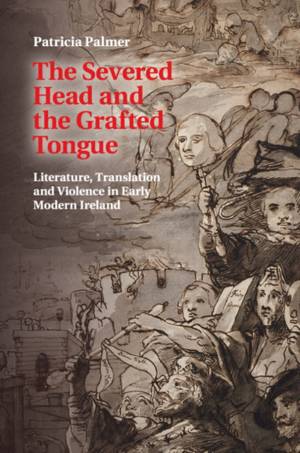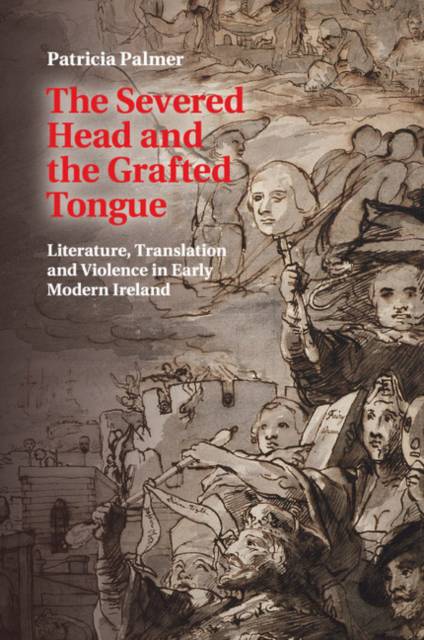
Bedankt voor het vertrouwen het afgelopen jaar! Om jou te bedanken bieden we GRATIS verzending (in België) aan op alles gedurende de hele maand januari.
- Afhalen na 1 uur in een winkel met voorraad
- In januari gratis thuislevering in België
- Ruim aanbod met 7 miljoen producten
Bedankt voor het vertrouwen het afgelopen jaar! Om jou te bedanken bieden we GRATIS verzending (in België) aan op alles gedurende de hele maand januari.
- Afhalen na 1 uur in een winkel met voorraad
- In januari gratis thuislevering in België
- Ruim aanbod met 7 miljoen producten
Zoeken
The Severed Head and the Grafted Tongue
Literature, Translation and Violence in Early Modern Ireland
Patricia Palmer
Paperback | Engels
€ 64,95
+ 129 punten
Uitvoering
Omschrijving
Severed heads emblemise the vexed relationship between the aesthetic and the atrocious. During the Elizabethan conquest of Ireland, colonisers such as Edmund Spenser, Sir John Harington and Sir George Carew wrote or translated epic romances replete with beheadings even as they countenanced - or conducted - similar deeds on the battlefield. This study juxtaposes the archival record of actual violence with literary depictions of decapitation to explore how violence gets transcribed into art. Patricia Palmer brings the colonial world of Renaissance England face-to-face with Irish literary culture. She surveys a broad linguistic and geographical range of texts, from translations of Virgil's Aeneid to the Renaissance epics of Ariosto and Ercilla and makes Irish-language responses to conquest and colonization available in readable translations. In doing so, she offers literary and political historians access not only to colonial brutality but also to its ethical reservations, while providing access to the all-too-rarely heard voices of the dispossessed.
Specificaties
Betrokkenen
- Auteur(s):
- Uitgeverij:
Inhoud
- Aantal bladzijden:
- 196
- Taal:
- Engels
Eigenschappen
- Productcode (EAN):
- 9781107614703
- Verschijningsdatum:
- 14/05/2015
- Uitvoering:
- Paperback
- Formaat:
- Trade paperback (VS)
- Afmetingen:
- 152 mm x 229 mm
- Gewicht:
- 267 g

Alleen bij Standaard Boekhandel
+ 129 punten op je klantenkaart van Standaard Boekhandel
Beoordelingen
We publiceren alleen reviews die voldoen aan de voorwaarden voor reviews. Bekijk onze voorwaarden voor reviews.









